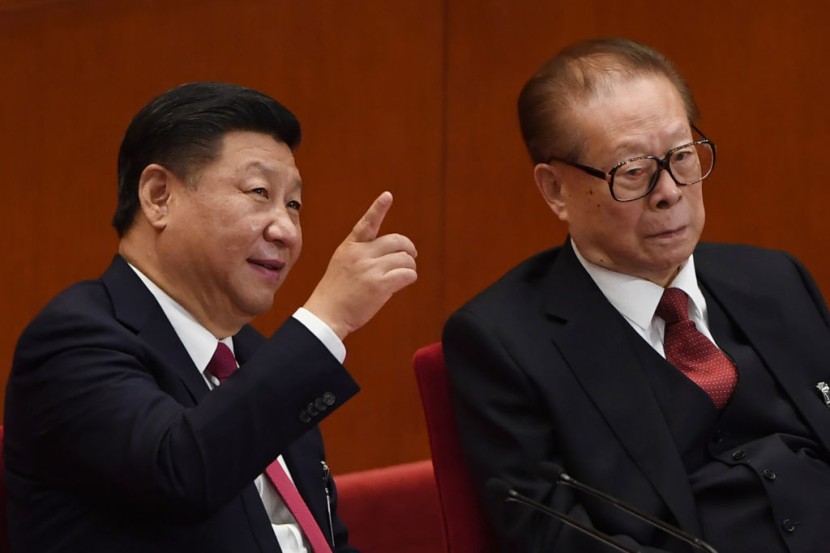
Chinese state media reported on Wednesday that former president Jiang Zemin, a key leader to China's rise to global superpower status, passed away at age 96 due to leukemia and multiple organ failure.
According to a report from Reuters, which cited state media Xinhua, Jiang passed away at 12:13 pm (0413 GMT). The Communist Party, parliament, cabinet, and military confirmed the demise of the former head of state in a letter.
The announcement conveyed that the death of Jiang Zemin "is an incalculable loss" to the party, military, and people of "all ethnic groups." It added that his passing brought a "profound grief".
It also paid tribute to "Comrade Jiang Zemin," describing him as an exceptional leader of high notoriety, a brilliant Marxist, military leader, statesman, and a seasoned communist soldier.
Jiang Zemin, who led the party as general secretary from 1989 to 2002, was the first prominent figure to have not participated in Mao Zedong's Communist China revolution, which ended in the establishment of the People's Republic in 1949 following a civil war triumph.
A Trail Blazing Leader
In June 1989, when Beijing was in crisis mode following supreme leader Deng Xiaoping's deadly assault on pro-democracy student protestors in Tiananmen Square and a widespread purge inside the government and state targeting sympathizers of the failed uprising, Jiang Zemin was promoted from his position as party chairman in Shanghai to the top position.
Jiang's ascent to power coincided with the West's distancing from China following its brutal response to the demonstration, which is sometimes referred to as the Tiananmen crackdown.
But in the years that followed, he oversaw some of China's defining events, ones that came to represent the country's deeper integration into the US-led global order and its rise to prominence on the international stage, per Nikkei Asia.
Read Also: Syrian Kurds Threaten Washington of Possible Assaults by Turkish Forces in Northern Syria
China's accession to the World Trade Organization (WTO) in 2001 and the 1997 handover of Hong Kong from the British colonial administration are two examples.
Under Jiang's administration in 2001, Beijing was selected to host the 2008 Summer Olympics.
According to South China Morning Post, Jiang Zemin is recognized for helping to expand China's economy and modernize its armed forces. On the diplomatic front, he pursued robust partnerships with the international community, particularly the US, although his relations with Japan, which he visited in 1998, were hampered by historical resentments.
Jiang's Legacy
In 2002, Jiang freely handed control to Hu Jintao, marking the first time the Communist party leadership had changed hands without a bloodbath in China since 1949.
Jiang Zemin had his notion of "Three Represents" integrated into the party's guiding principles during the 2002 Chinese national party congress when Hu Jintao took over as general secretary. His ideas prioritized industrialization, enlightenment, and political harmony.
This month saw the latest iteration of China's highest leadership conference, the congress, which occurs every two decades. However, Jiang was not present on the occasion.
Jiang still had considerable sway when he stepped down as general secretary. He served as president until March 2003 and as head of the Central Military Commission until 2004. As Hu's replacement, he was considered the party's number two official.








